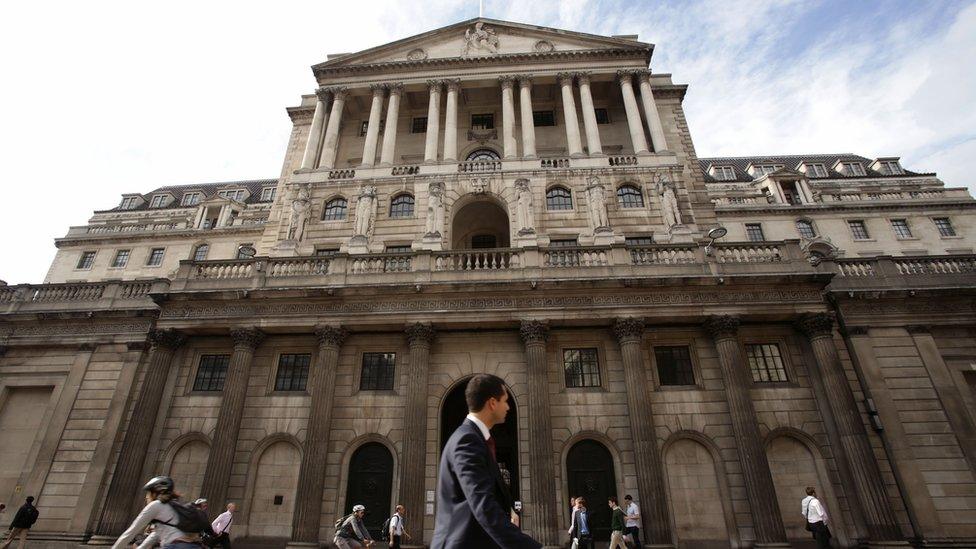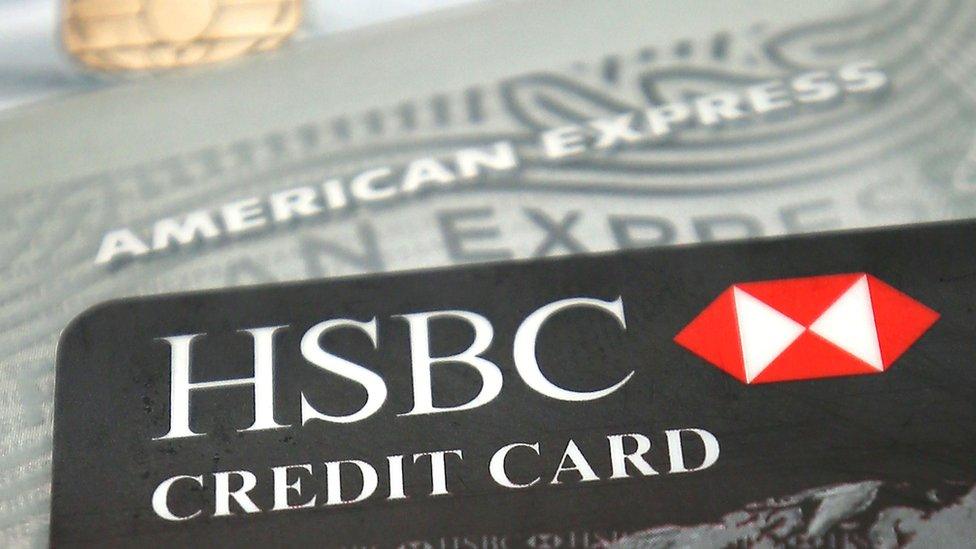Bank still worried about personal lending
- Published
- comments

The recent rapid rise in consumer borrowing is still a potential threat to the stability of the UK's financial system, says the Bank of England.
The Bank is concerned about the damage that could be done to the finances of lenders if borrowers default on their borrowing during an economic downturn.
The Bank's continued worries are made clear in the latest minutes of its Financial Policy Committee (FPC), external.
These highlight the growth of credit card, bank loan and car loan borrowing.
"[Consumer credit] had reached an annual growth rate of 10.9% in November 2016 - the fastest rate of expansion since 2005 - before easing back somewhat in subsequent months," the Bank said.
"Dealership car finance had seen the fastest expansion in recent years, but credit cards and personal loans had contributed materially to the acceleration in consumer credit in 2016," it added.
Uncertainty
These elements of household borrowing - known as consumer credit - are dwarfed by the amount of money that has been lent to home buyers in the form of mortgages.
But the Bank fears that lenders may have become too slack in deciding to whom they should lend.
The FPC pointed to the increasing length of interest-free periods being offered to borrowers who want to take advantage of special deals to transfer their credit card balances.

Data from the price comparison service Moneyfacts, external shows that some card issuers will now offer interest-free periods of as long as 43 months.
The Bank pointed out that credit card firms were allowed, under accounting rules, to book interest income from these borrowers, even during the interest-free period itself, on the assumption that interest payments would be made in the future.
"These estimates were highly dependent on assumptions around the future behaviour of borrowers at the end of the interest-free period, which was uncertain," the Bank warned.
In other words, borrowers might default or simply move their card balances elsewhere.
This accounting approach is not news to the Bank, but it has been paying more attention to it precisely because lenders have been extending the interest-free periods which they offer.
Another area of concern, the Bank said, was that some lenders had been offering larger, unsecured, personal loans than before.
'Close monitoring'
Consumer credit lending is still less than 10% of all lending by UK banks to household borrowers, and is far smaller than mortgage lending which amounts to 70% of loans to households.
But UK lenders stand to lose much more on their consumer credit loans if there is an economic downturn and their borrowers default on their credit card and other personal loans.
In last year's stress-testing exercise of UK banks, to work out how much they might lose if there was another recession, it was assessed that UK banks might lose £18.5bn on their consumer credit loans, compared with £11.8bn on their mortgage loans.

The Bank said: "Relative to mortgage debt, consumer credit was less likely to pose a risk to broader macroeconomic stability through its effect on household spending."
"Instead, the recent rapid growth in consumer credit could principally represent a risk to lenders if accompanied by weaker underwriting standards," it warned.
So far though, the Bank is keeping an eye on things and has not yet decided to use its powers to restrict consumer lending.
"The FPC judged that underwriting standards should be monitored closely," it said.
However another arm of the Bank, the Prudential Regulation Authority (PRA) has already started a review of the quality of new consumer credit lending, the results of which may affect future decision making at the Bank.
- Published3 April 2017

- Published24 March 2017

- Published31 January 2017

- Published27 January 2017
